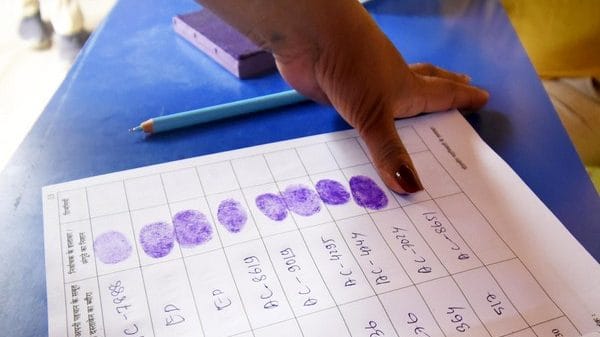Thank you dear subscribers, we are overwhelmed with your response.
Your Turn is a unique section from ThePrint featuring points of view from its subscribers. If you are a subscriber, have a point of view, please send it to us. If not, do subscribe here: https://theprint.in/
In Delhi University elections, Candidates sip tea together while students sip disappointment. Often celebrated as democratic exercises, student elections at the University of Delhi (DU) frequently resemble marketplaces of power, deals, and betrayal over true representation. Being a law student at Campus Law Centre (CLC), a hub of student politics, I’ve witnessed how these elections deviate from democratic ideals, becoming spectacles of compromise and unfulfilled promises rather than platforms for genuine student representation.
The Facade of Ideology
On the surface, student elections seem to be ideological battles between groups aligned with Left, Right, or Activism. Candidates portray themselves as guards to their ideals, vying for the support of like-minded students. However, behind the scenes, these same candidates, regardless of their public rivalries, collaborate, strike deals, to divide vote banks and secure neutral voters. What seems like ideological enthusiasm is often a show, elections reduced to number-crunching over conviction. Camaraderie among rivals could reflect maturity, but here it reduces students to statistics, sidelining genuine issues.
The Reality at Campus Law Centre
As election season arrives, Campus Law Centre turns into a noisy, colourful battlefield. Campaigners swarm the campus, pitching themselves as helpful guides for freshers, but often crossing ethical boundaries. While not every campaigner crosses ethical lines, many resort to harassment and violate students’ privacy. Admission data, including phone numbers and email addresses, is shamelessly used as a marketing tool. This access is often exploited to particularly harass female students. Despite manifesto promises of a ‘safe campus,’ no one explains safe from what, or whom?. The absence of CCTV infrastructure and persistent safety concerns reveal the hollowness of these pledges.
Core student issues like infrastructure gaps, examination delays, result backlogs, or the lack of functional internship cells are seldom addressed meaningfully. When they do appear in manifestos, they often vanish post-election. Moreover, elections are marred by divisive tactics rooted in caste and regional identities, with vote banks built on these affiliations. Deals between rival groups, especially for smaller college-level seats in exchange for DUSU-level support, further reveal the transactional nature of these elections, undermining any pretense of ideological purity.
The Missing Democracy
When representation becomes transactional, democracy falters. Campaigners’ promises and emotional speeches often dissolve after elections. Genuine issues are overshadowed by a system where former student leaders, now in mainstream politics, and external activists exert influence, prioritizing their own ambitions over campus welfare. These figures provide funding, manpower, and logistical support, often pressuring candidates. For many candidates, contesting elections is less about serving students and more about building personal political capital, leaving even well-intentioned candidates constrained by the machinery behind them.
The Consequences of Transactional Politics
The focus on winning at all costs, through compromised ideologies or opportunistic alliances, relegates student welfare to the background. Elected student unions often cater only to their supporters, fostering a quid pro quo culture that erodes trust in the electoral process. This rising disillusionment has contributed to a noticeable decline in voter turnout. As reported by The Indian Express on the 2024 DU elections, the overall turnout across the university plummeted to just 29.7%, the lowest in 13 years. While CLC maintained a comparatively higher turnout of around 60%, as many students treat election day more as a break from routine than a meaningful exercise of their democratic rights. As John Dewey observed, the strength of a democracy depends on conscious public engagement, yet student participation today is often driven more by social or personal ties than by any real faith in change. While some candidates genuinely strive for student welfare, the pervasive transactional culture undermines collective faith in campus democracy.
Conclusion: Towards a Responsible Student Democracy
Dr. B.R. Ambedkar emphasized that true democracy demands an informed and active citizenry. However, DU’s student elections, reduced to electoral arithmetic, betray this ideal. Restoring democratic spirit requires collective action: students must engage as active stakeholders, not passive voters; the administration must ensure transparency and accountability; and candidates must prioritize genuine representation over deal-making.
Three reforms are critical. First, manifestos must face mandatory scrutiny to prevent unrealistic promises. Second, formal debates moderated by neutral academics should replace noisy campaigns, emphasizing substance over spectacle. Third, robust grievance redressal cells, monitored by faculty, must address student concerns during and after elections. Campus democracy should foster leadership and service, not personal ambition. Until elections prioritize responsibility over transactions, they’ll remain noisy marketplaces, not democratic workshops.
These pieces are being published as they have been received – they have not been edited/fact-checked by ThePrint.


